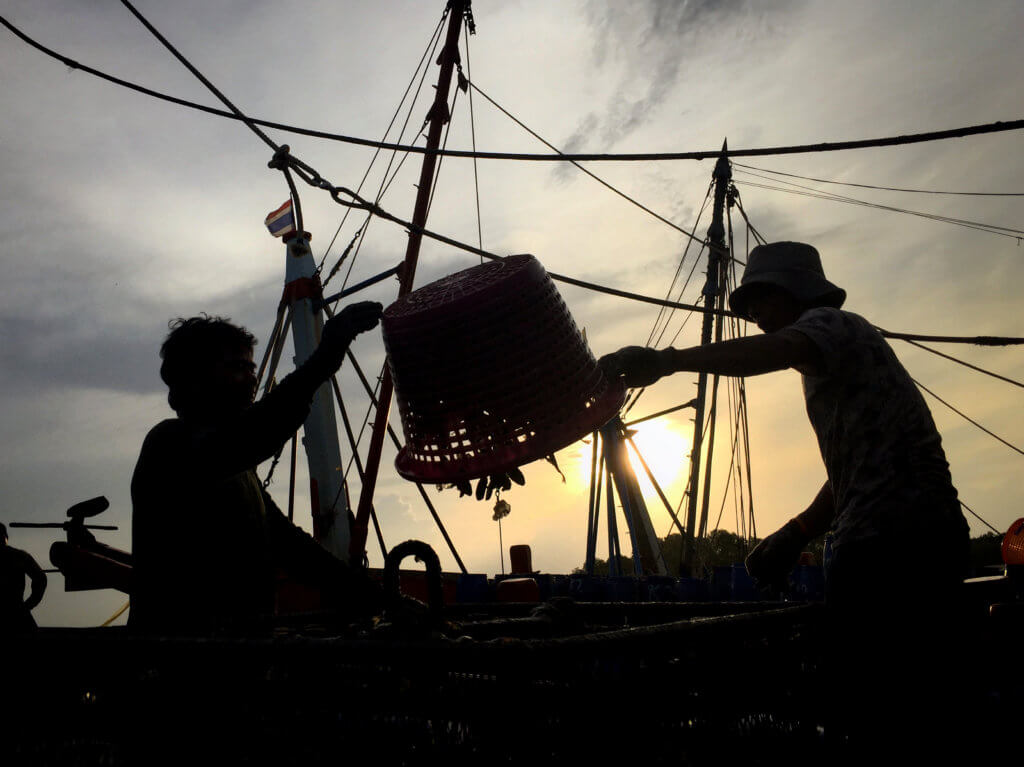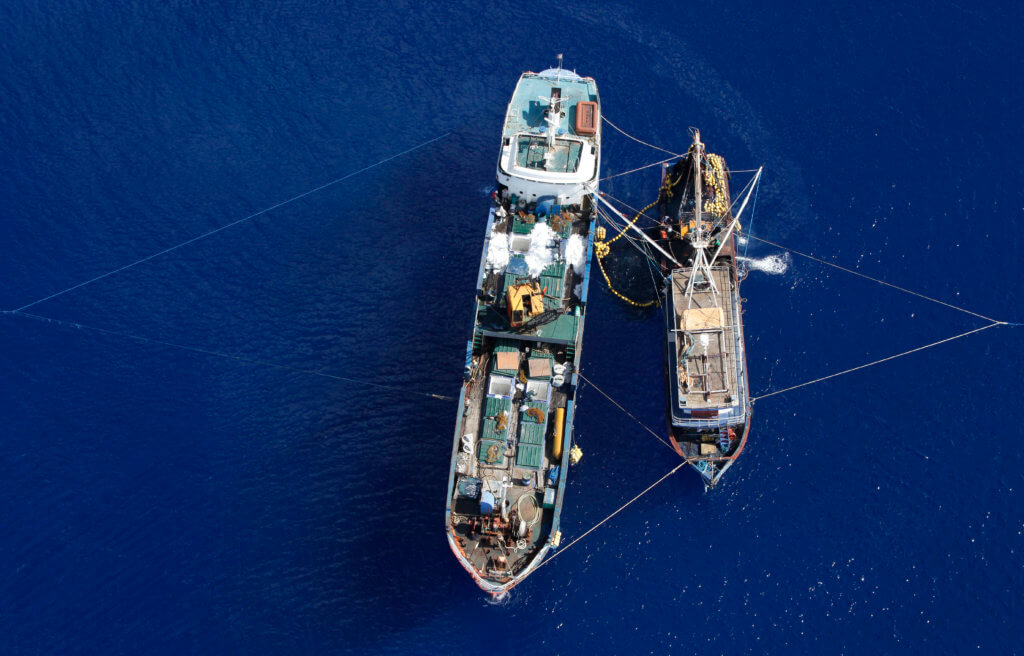IUU fishing can be highly exploitative and undermines international efforts to prevent overfishing, habitat destruction, and bycatch of non-target fish species and other marine animals. It compromises the sustainability of legal fishing operations, as well as the economic and social development of communities that rely on fishing for their livelihoods.
Ethical concerns with IUU fishing extend past sustainability. These practices are frequently associated with poor labour standards and with transnational crime, such as drug trafficking and slavery at sea. IUU fishing, labour abuses and slavery have the same root causes – a lack of monitoring and enforcement, overfishing, and the demand for cheap seafood.
As fish populations have declined in coastal waters, fishers have to travel farther to find fish. This increases the costs of fuel and labour, so unscrupulous vessel owners and captains cut costs by breaking rules and mistreating their crews and the environment.
Crew conditions on these fishing vessels can be brutal including 20 hour workdays; lack of basic sanitation and safety measures, resulting in injury and illness; cramped sleeping conditions; and limited and poor quality food and drinking water. Crews also report sexual harassment, verbal and physical abuse, debt bondage, torture, human trafficking and slavery, and murder.
Serious labour abuses are a particular problem on fishing vessels travelling far from home and operating on the high seas, beyond national waters. Remoteness, isolation and long periods at sea make it easier to hide poor conditions on board fishing vessels. These vessels often transfer their catches to ‘motherships’ or carrier vessels – known as ‘transshipment’ – so that they don’t have to return to port for months or even years. This makes it easier to hide illegal catches within legal ones, while making it very difficult for authorities to monitor their activities or for abused crew to escape.
Image © Biel Calderon / Greenpeace


